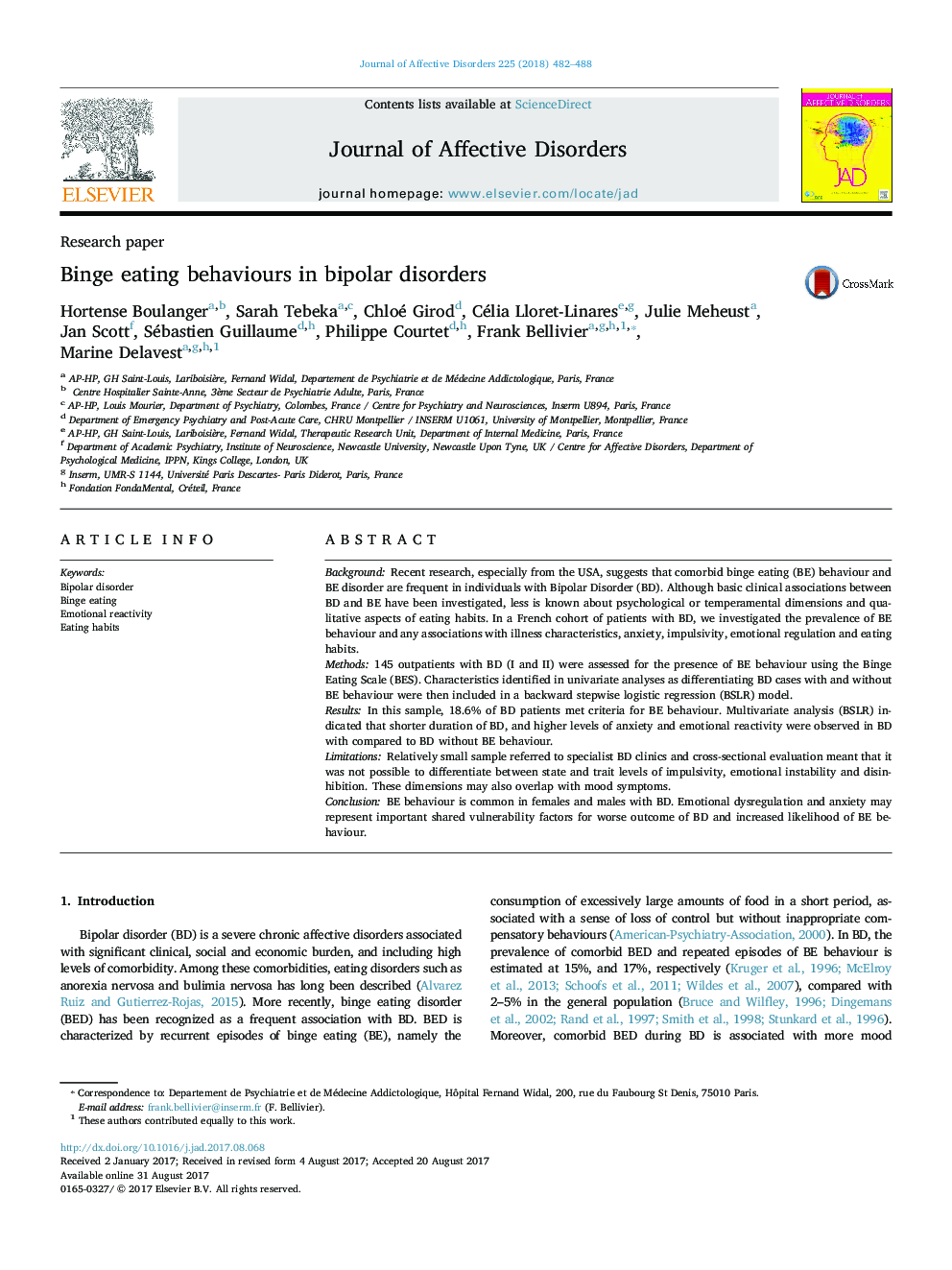| کد مقاله | کد نشریه | سال انتشار | مقاله انگلیسی | نسخه تمام متن |
|---|---|---|---|---|
| 5721750 | 1608100 | 2018 | 7 صفحه PDF | دانلود رایگان |
- Binge eating behaviour is frequent in individuals with bipolar disorder.
- Binge eating behaviour is associated with impulsivity, emotional dysregulation and anxiety.
- No association with gender and Body Mass Index was found.
BackgroundRecent research, especially from the USA, suggests that comorbid binge eating (BE) behaviour and BE disorder are frequent in individuals with Bipolar Disorder (BD). Although basic clinical associations between BD and BE have been investigated, less is known about psychological or temperamental dimensions and qualitative aspects of eating habits. In a French cohort of patients with BD, we investigated the prevalence of BE behaviour and any associations with illness characteristics, anxiety, impulsivity, emotional regulation and eating habits.Methods145 outpatients with BD (I and II) were assessed for the presence of BE behaviour using the Binge Eating Scale (BES). Characteristics identified in univariate analyses as differentiating BD cases with and without BE behaviour were then included in a backward stepwise logistic regression (BSLR) model.ResultsIn this sample, 18.6% of BD patients met criteria for BE behaviour. Multivariate analysis (BSLR) indicated that shorter duration of BD, and higher levels of anxiety and emotional reactivity were observed in BD with compared to BD without BE behaviour.LimitationsRelatively small sample referred to specialist BD clinics and cross-sectional evaluation meant that it was not possible to differentiate between state and trait levels of impulsivity, emotional instability and disinhibition. These dimensions may also overlap with mood symptoms.ConclusionBE behaviour is common in females and males with BD. Emotional dysregulation and anxiety may represent important shared vulnerability factors for worse outcome of BD and increased likelihood of BE behaviour.
Journal: Journal of Affective Disorders - Volume 225, 1 January 2018, Pages 482-488
